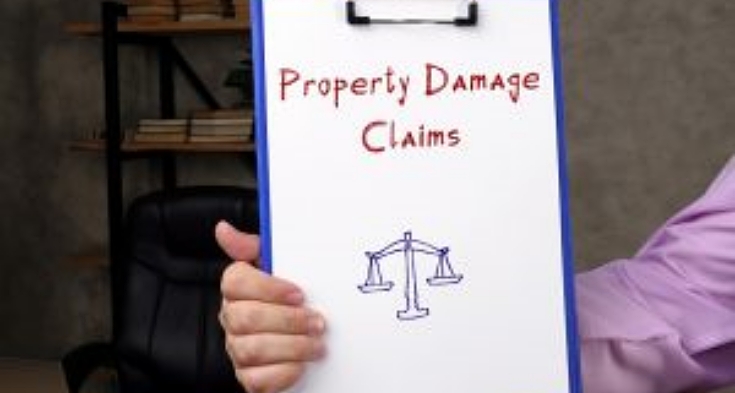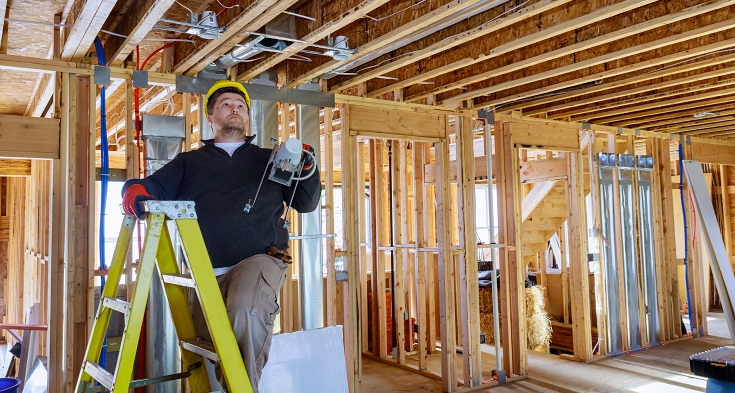
When a health care provider receives notice of a complaint from the Bureau of Health Care Practitioner Regulation within the Florida Department of Health (DOH), it can trigger significant concern. These complaints may involve serious allegations, ranging from medication errors and patient safety incidents to boundary violations or substance abuse. Understanding how the operates, what to expect during administrative proceedings, and how a legal team from Elevate Legal Services, PLLC helps providers defend their rights and licensure is essential for every medical professional.
In this article, we explore the disciplinary process under Florida law, from the initial complaint through investigation, probable cause, administrative complaint, hearing, and potential sanctions or dismissal. If you are facing a DOH investigation or disciplinary proceeding, our team at Elevate Legal Services, PLLC, is here to guide you. Call us today at 561-770-3335 or email [email protected] for a confidential case review.
What Is the Bureau of Health Care Practitioner Regulation?
The Bureau of Health Care Practitioner Regulation is a division of the Florida Department of Health tasked with overseeing licensed health care providers. Its mission is to:
- Receive and evaluate complaints or reports concerning licensed practitioners
- Conduct investigations into potential violations of Chapter 456 and relevant practice acts
- Pursuing administrative actions that protect public safety and uphold licensure standards
Florida statutes, such as Chapter 456 (Health Professions & Occupations: General Provisions) and specific licensure statutes (e.g., Chapter 458 for physicians, Chapter 464 for nurses), empower the to enforce standards of care and practitioner conduct.
Step 1: Complaint or Report Received
Origin of the Complaint
Complaints may arise from multiple sources:
- Patients or family members filing grievances
- Employers or facility administrators reporting incidents
- Peer reports from colleagues or other health professionals

- Mandatory reporting incidents (e.g., criminal convictions, mental or physical impairment)
Initial Screening
Once a complaint is filed, the initiates a preliminary screening to assess whether the complaint lies within its authority, involves a licensed provider, and alleges facts that may constitute a violation. If not, the complaint may be dismissed. If it survives this stage, the opens a formal investigation.
Key Points:
- Not all complaints trigger investigations
- Screening ensures efficient use of agency resources
Step 2: Peer Review & Investigation
Peer Review Consultation
Florida law mandates peer review participation in health care investigations (Section 456.072). These panels review clinical practice questions, offer expertise, and provide opinions on standard-of-care issues.
Investigative Process
The DOH conducts a systematic inquiry that may include:
- Written requests for documents, charts, and personnel files
- Interviews with complainants, witnesses, and the provider
- Inspections of workplace facilities when applicable
- Expert consultation through retained experts or peer review panels
Providers must respond thoroughly and promptly to subpoenas and investigatory demands to avoid being named uncooperative.
Key Points:
- Gathering documentation and witness statements is critical
- Peer review offers clinically grounded perspectives
Step 3: Probable Cause Determination
Role of the Probable Cause Panel
Once the investigation concludes, the submits the case to a Probable Cause Panel—composed of two health professionals and one public member—who determines whether there is reasonable basis to believe a violation occurred.
Possible Determinations
- No Probable Cause: Investigation terminates, meaning relief for the practitioner
- Probable Cause: The bureau files an administrative complaint and refers the case to the DOH’s Division of Administrative Hearings (DOAH)
Key Points:
- The panel acts as a neutral gatekeeper
- Probable cause is only the threshold to proceed, not a final finding
Step 4: Administrative Complaint Filed
Contents of the Complaint
If probable cause exists, the drafts an administrative complaint that details:
- Statutes and rules allegedly violated
- Factual allegations based on investigation
- Proposed disciplinary actions (e.g., probation, fines, suspension, revocation)
A copy of this complaint is formally served on the provider, who becomes the “respondent.”
Legal Rights Upon Receiving a Complaint
Respondents retain robust due-process rights:
- Right to legal representation
- Right to object to claims or evidence
- Right to request additional discovery
- Right to a formal hearing before an Administrative Law Judge (ALJ)
At Elevate Legal Services, PLLC, our attorneys prepare petitions to formally respond and raise preliminary arguments or dismissal motions when appropriate.
Key Points:
- Do not ignore the complaint—deadlines matter
The response stage shapes the nature of eventual hearing
Step 5: Pre-hearing and Discovery
Exchanging Evidence
Both parties submit documentary evidence, depose witnesses, and may seek subpoenas. Common documents include:
- Medical records, logs, and audits
- Policies and standard operating procedures
- Expert witness reports
- Employment files
Motions and Hearings
Pre-hearing conferences are typically scheduled. Parties may file motions to dismiss, motions for summary judgment, or motions to limit scope of evidence. Preparation at this stage often determines whether the case goes fully to hearing or resolves earlier.
Key Points:
- Discovery can heavily influence negotiation leverage
- Expert witness opinions can make or break a case
Step 6: The Administrative Hearing
Conduct of Hearing
These formal hearings before an ALJ resemble courtroom proceedings and may include:
- Opening statements
- Direct and cross-examination of witnesses
- Presentation of documentary evidence
- Expert testimony on the standard of care or licensing impact
- Closing arguments
Hearings are recorded, and transcripts become part of the record.
Provider’s Role
With skilled representation, providers can:
- Highlight inconsistencies in complaint or witness statements
- Offer expert testimony on care standards
- Emphasize mitigating circumstances
- Challenge legal or evidentiary issues
Our team ensures strong advocacy and narrative presentation throughout this phase.
Key Points:
- Preparation and rehearsal are essential
- Expert testimony is often key in standard-of-care situations
Step 7: Recommended Order & DOH Final Order
ALJ’s Recommended Order
Following the hearing, the ALJ drafts a recommended order with findings of fact and conclusions of law. The findings:
- Determine which violations were proven
- Recommend sanctions (e.g., probation, fines, monitoring, reprimand, suspension, revocation)
DOH Final Order
The Department may accept, reject, or modify recommendations. Once the Final Order is issued:
- Penalties are triggered (e.g., probation monitored by DOH)
- Suspension or license revocation takes effect
- Fines or orders for corrective action are enforced
Key Points:
- The ALJ’s recommendation influences but does not bind DOH
- Final Order kicks off any disciplinary actions
Step 8: Judicial Review
After issuance, respondents have the right to challenge the Final Order in Florida’s circuit courts under the Administrative Procedure Act (Section 120.68(1)). Grounds for appeal may include:
- Errors in legal interpretation
- Misapplication of facts
- Procedural violations impacting due process
If the appeal fails, any further appeals proceed to the Florida District Courts of Appeal.
Key Points:
- Appeals are strictly procedural and require legal grounds
- Judicial review can extend the timeline and place additional scrutiny on the process
Sanctions and Corrective Measures
Possible Sanctions
Sanctions vary with the severity of violations. These can include:
- Formal reprimand or letter of guidance
- Probation with conditions (e.g., reporting, continuing education, supervised practice)
- Monetary fines
- License suspension or permanent revocation
Alternatives to Discipline
Some cases may be resolved through agreed dispositions, involving:
- No contest agreements
- Stipulated facts and negotiated terms
- Performance monitoring and supervision plans
These dispositions may limit the adverse impact on reputation and licensure.
Key Points:
- Outcomes depend on factual and legal context
- Collaborative settlements can allow providers to continue working
Why Providers Should Engage Legal Counsel
Complex Rules and Legal Standards
DOH proceedings involve layered statutes, professional practice rules, and complex administrative procedures. Even technical missteps in pleading or evidence can be decisive.
Strategic Case Development
An experienced attorney can:
- Identify procedural defects early
- Vet investigation materials and challenge weaknesses
- Prepare expert reports and witness strategies
- Negotiate favorable dispositions
Reputation and License Protection
Legal representation:
- Helps preserve licensure and scope of practice
- Can limit punitive sanctions
- Positions the provider proactively before regulators
At Elevate Legal Services, PLLC, we understand the reputational and professional impact of disciplinary matters and work diligently to minimize disruption.
Why Choose Elevate Legal Services, PLLC?
- Focused Administrative Law Expertise: Our attorneys have deep experience defending health care practitioners before the DOH and DOAH, including physicians, nurses, and allied providers.
- Strategic Case Handling: We employ thorough investigation, peer review, and case development tactics to challenge weak allegations and highlight strengths

- Responsive Legal Support: At every stage, from complaint receipt through hearings and appeals, we guide clients with clarity and timely, professional communication.
- Florida Law Knowledge: We leverage our knowledge of Florida statutes and case laws, such as Sections 456.073 and 120.57(2)(j), to protect clients’ licensing and employment interests.
How to Respond if You Receive a DOH Notice
- Don’t panic — carefully review the notice and deadline
- CallElevate Legal Services, PLLC immediately at 561-770-3335 or email [email protected]
- Preserve evidence — collect records, emails, colleague statements
- Engage experts early to evaluate care and procedure
- Negotiate when possible — some cases admit resolution; even contested cases may benefit from early motion
- Prepare for hearing — develop narrative, simulate cross-examination, craft expert testimony
Acting promptly sets the stage for a stronger defense.
Final Thoughts
Facing an Administrative Complaint from the Bureau of Health Care Practitioner Regulation can be one of the most daunting challenges in a health care provider’s career. Navigating Florida’s disciplinary system involves numerous stages—from investigation and probable cause determination to administrative hearings and possible judicial review. With license status and professional reputation at stake, immediate consultation with counsel is essential.
At Elevate Legal Services, PLLC, we are committed to safeguarding your rights, license, and livelihood. Our firm brings strategic insight, procedural expertise, and steadfast advocacy at every step of the process. If you receive notice of a DOH complaint or are concerned about an ongoing investigation, don’t hesitate to connect with us. Call 561-770-3335 oremail [email protected] today for a confidential consultation.





